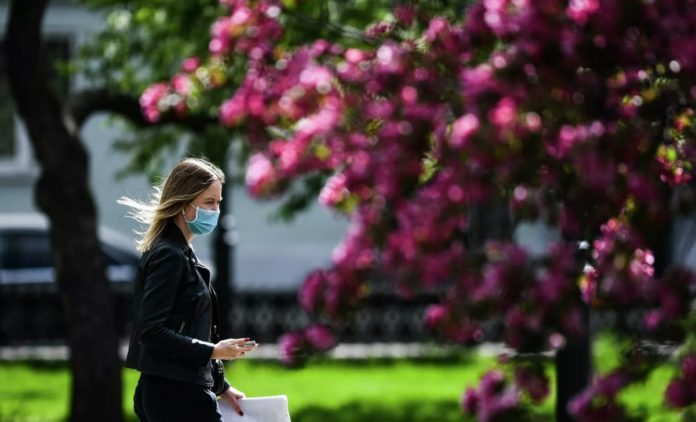Scientists have found a link between the level of infection with the SARS-CoV-2 virus and the concentration of airborne pollen.
The authors of the study, published in the journal Proceedings of the National Academy of Sciences, believe that one of the factors of the rapid spread of coronavirus infection in the first half of 2020 in the countries of the Northern Hemisphere was the spring flowering of plants, and this year, an increase in pollen in the air may also contribute the spring surge of COVID-19.
- Does This Mean We Stopped Being Animal and Started Being Human Due to ‘Copy Paste’ Errors?
- The One Lifestyle Choice That Could Reduce Your Heart Disease Risk By More Than 22%
- Aging: This Is What Happens Inside Your Body Right After Exercise
- Immune-Boosting Drink that Mimics Fasting to Reduce Fat – Scientists ‘Were Surprised’ By New Findings
- Gun Violence in America: What They Don’t Talk About at the Debate
Researchers from the international COVID-19 / POLLEN project led by Claudia Traidl-Hoffmann from the Technical University of Munich, the Institute for Environmental Medicine, and the University of Augsburg in Germany studied the effect of pollen grains of various plant taxa on human susceptibility to the SARS-CoV-2 virus.
The seasonal emission of pollen from plants observed every spring in the Northern Hemisphere is known to coincide with the peak of respiratory virus infections. The authors suggested that this rule applies to the new coronavirus SARS-CoV-2.
“Exposure to pollen weakens immunity against certain seasonal respiratory viruses by decreasing the antiviral interferon response. We investigated whether the same applies to SARS-CoV-2, which is sensitive to antiviral interferons, if the waves of infection coincide with high concentrations of pollen in the air,” write the authors of the article.
Scientists conducted cross-sectional and longitudinal analyzes of levels of airborne pollen and SARS-CoV-2 infection in 130 regions from 31 countries on five continents. The analysis also took into account environmental and demographic factors such as average air temperature, humidity, population density and isolation status.
The authors found that airborne pollen, alone or in combination with temperature and humidity, is responsible, on average, for about 44 percent of the variability in infection rates. The daily levels of infection were everywhere correlated with the amount of pollen in the air, but in countries where the isolation regime was in force, infection rates at similar concentrations of pollen were half that in countries that did not introduce quarantine.
The researchers note that exposure to pollen makes people more susceptible to COVID-19, whether they are allergic to pollen or not. At the same time, the pollen particles themselves are not carriers of the virus, but only increase the susceptibility to infection.
- Does This Mean We Stopped Being Animal and Started Being Human Due to ‘Copy Paste’ Errors?
- The One Lifestyle Choice That Could Reduce Your Heart Disease Risk By More Than 22%
- Aging: This Is What Happens Inside Your Body Right After Exercise
- Immune-Boosting Drink that Mimics Fasting to Reduce Fat – Scientists ‘Were Surprised’ By New Findings
- Gun Violence in America: What They Don’t Talk About at the Debate
The analysis showed that on days of particularly strong pollen production, the number of infections increased by 10-30 percent. In this regard, scientists strongly recommend using masks to filter pollen particles in the spring, especially for people at risk.
